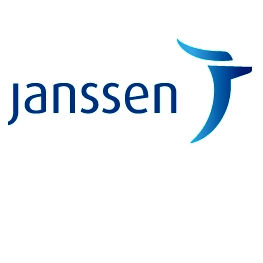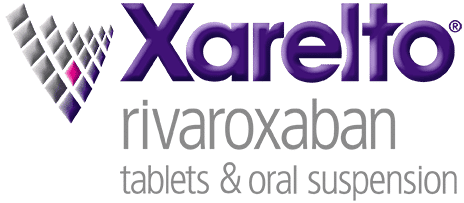预约演示
更新于:2025-05-24
JNJ-26483327
更新于:2025-05-24
概要
基本信息
药物类型 小分子化药 |
别名 BGB-102、JNJ 26483327、MTKI-327 |
作用方式 拮抗剂、抑制剂 |
作用机制 EGFR拮抗剂(表皮生长因子受体erbB1拮抗剂)、FLT3抑制剂(酪氨酸蛋白激酶受体FLT3抑制剂)、HER2拮抗剂(受体蛋白酪氨酸激酶 erbB-2拮抗剂) |
治疗领域 |
在研适应症- |
非在研适应症 |
在研机构- |
最高研发阶段无进展临床1期 |
首次获批日期- |
最高研发阶段(中国)- |
特殊审评- |
登录后查看时间轴
结构/序列
分子式C22H25BrN4O2 |
InChIKeyJXDYOSVKVSQGJM-UHFFFAOYSA-N |
CAS号807640-87-5 |
关联
2
项与 JNJ-26483327 相关的临床试验NL-OMON29756
An Open-label, Phase I Study to determine the Safety and Pharmacokinetics of JNJ-26483327, a Multi-targeted Kinase Inhibitor, administered to Subjects with Advanced Stage and/or Refractory Solid Malignancies - Dose escalation safety and Pharmacokinetic study.
开始日期2006-10-26 |
申办/合作机构- |
NCT00676299
An Open-label, Phase I Study to Determine the Safety and Pharmacokinetics of JNJ-26483327, a Multi-targeted Kinase Inhibitor, Administered to Subjects With Advanced Stage and/or Refractory Solid Malignancies
The purpose of this study is to assess JNJ-26483327 (a drug in development for cancer) for the safety of the drug in patients with advanced solid tumors that have not responded or are no longer responding to available therapies. The absorption, breakdown and elimination of the drug will also be studied.
开始日期2006-08-01 |
100 项与 JNJ-26483327 相关的临床结果
登录后查看更多信息
100 项与 JNJ-26483327 相关的转化医学
登录后查看更多信息
100 项与 JNJ-26483327 相关的专利(医药)
登录后查看更多信息
4
项与 JNJ-26483327 相关的文献(医药)2022-04-03·Autoimmunity4区 · 医学
Drug repurposing for rheumatoid arthritis: Identification of new drug candidates via bioinformatics and text mining analysis
4区 · 医学
Article
作者: Unal, Ulku ; Gov, Esra ; Comertpay, Betul ; Demirtas, Talip Yasir
Rheumatoid arthritis (RA) is an autoimmune disease that results in the destruction of tissue by attacks on the patient by his or her own immune system. Current treatment strategies are not sufficient to overcome RA. In the present study, various transcriptomic data from synovial fluids, synovial fluid-derived macrophages, and blood samples from patients with RA were analysed using bioinformatics approaches to identify tissue-specific repurposing drug candidates for RA. Differentially expressed genes (DEGs) were identified by integrating datasets for each tissue and comparing diseased to healthy samples. Tissue-specific protein-protein interaction (PPI) networks were generated and topologically prominent proteins were selected. Transcription-regulating biomolecules for each tissue type were determined from protein-DNA interaction data. Common DEGs and reporter biomolecules were used to identify drug candidates for repurposing using the hypergeometric test. As a result of bioinformatic analyses, 19 drugs were identified as repurposing candidates for RA, and text mining analyses supported our findings. We hypothesize that the FDA-approved drugs momelotinib, ibrutinib, and sodium butyrate may be promising candidates for RA. In addition, CHEMBL306380, Compound 19a (CHEMBL3116050), ME-344, XL-019, TG100801, JNJ-26483327, and NV-128 were identified as novel repurposing candidates for the treatment of RA. Preclinical and further validation of these drugs may provide new treatment options for RA.
2014-09-01·European journal of pharmaceutics and biopharmaceutics : official journal of Arbeitsgemeinschaft fur Pharmazeutische Verfahrenstechnik e.V2区 · 医学
Nanosuspension for the delivery of a poorly soluble anti-cancer kinase inhibitor
2区 · 医学
Article
作者: Danhier, Fabienne ; Vanderhaegen, Marie-Lyse ; Arien, Tina ; Ucakar, Bernard ; Préat, Véronique ; Brewster, Marcus E
We hypothesized that nanosuspensions could be promising for the delivery of the poorly water soluble anti-cancer multi-targeted kinase inhibitor, MTKi-327. Hence, the aims of this work were (i) to evaluate the MTKi-327 nanosuspension for parenteral and oral administrations and (ii) to compare this nanosuspension with other nanocarriers in terms of anti-cancer efficacy and pharmacokinetics. Therefore, four formulations of MTKi-327 were studied: (i) PEGylated PLGA-based nanoparticles, (ii) self-assembling PEG₇₅₀-p-(CL-co-TMC) polymeric micelles, (iii) nanosuspensions of MTKi-327; and (iv) Captisol solution (pH=3.5). All the nano-formulations presented a size below 200 nm. Injections of the highest possible dose of the three nano-formulations did not induce any side effects in mice. In contrast, the maximum tolerated dose of the control Captisol solution was 20-fold lower than its highest possible dose. The highest regrowth delay of A-431-tumor-bearing nude mice was obtained with MTKi-327 nanosuspension, administered intravenously, at a dose of 650 mg/kg. After intravenous and oral administration, the AUC₀₋∞ of MTKi-327 nanosuspension was 2.4-fold greater than that of the Captisol solution. Nanosuspension may be considered as an effective anti-cancer MTKi-327 delivery method due to (i) the higher MTKi-327 maximum tolerated dose, (ii) the possible intravenous injection of MTKi-327, (iii) its ability to enhance the administered dose and (iv) its higher efficacy.
2010-09-01·British journal of cancer1区 · 医学
Phase I and pharmacological study of the broad-spectrum tyrosine kinase inhibitor JNJ-26483327 in patients with advanced solid tumours
1区 · 医学
Article
作者: P Hellemans ; Z Yuan ; H Winkler ; I R H M Konings ; L E C van Beijsterveldt ; H Burger ; A van der Gaast ; F A L M Eskens ; J Verweij ; M J A de Jonge
BACKGROUND:
JNJ-26483327 is an oral, potent, multi-targeted tyrosine kinase inhibitor, inhibiting kinases of epidermal growth factor receptor (EGFR)-1, -2 and -4, rearranged during transfection (RET) receptor, vascular endothelial growth factor receptor (VEGFR)-3 and Src family (Lyn, Fyn, Yes) at low nanomolar concentrations. This phase I, accelerated titration study assessed maximum tolerated dose, safety, pharmacokinetics and pharmacodynamic effects of JNJ-26483327.
METHODS:
Nineteen patients with advanced cancers received JNJ-26483327 continuous twice daily (BID) in escalating dose cohorts ranging from 100 to 2100 mg. Pharmacodynamic effects were assessed in paired skin biopsies and blood.
RESULTS:
JNJ-26483327 was well tolerated in doses up to 1500 mg BID, with target-inhibition-related toxicity such as diarrhoea and skin rash, and other common reported toxicities being nausea, vomiting, anorexia and fatigue. At 2100 mg, two episodes of dose-limiting toxicity were observed, consisting of grade 3 anorexia and a combination of grade 3 anorexia and fatigue, respectively. Pharmacokinetics were dose proportional up to 1500 mg in which plasma levels were obtained showing anti-tumour activity in xenograft mouse models. Pharmacodynamic analysis did not show a substantial effect on expression of Ki-67, p27(kip1), phosphorylated mitogen-activated protein kinase, phosphorylated Akt and EGFR, and serum levels of sVEGFR-2, VEGF-C and VEGF-D remained unchanged. Stable disease was noted in six patients (32%).
CONCLUSION:
JNJ-26483327 is well tolerated and shows a predictable pharmacokinetic profile; the recommended dose for further studies is 1500 mg BID.
1
项与 JNJ-26483327 相关的新闻(医药)2023-05-31
·米内网
精彩内容6月2-6日,2023年美国临床肿瘤学会(ASCO)年会将于美国芝加哥举行。多家制药厂商纷纷公布旗下产品的最新临床数据,19项中国研究入选“口头汇报”,涉及百济神州的泽尼达妥单抗、恒瑞医药的卡瑞利珠单抗+阿帕替尼、科伦药业的KL590586、百利天恒的BL-B01D1等国产1类新药,成果璀璨耀目。● 恒瑞医药 - 卡瑞利珠单抗+阿帕替尼适应症:子宫内膜癌临床试验登记号:ChiCTR2000031932摘要号:5516根据ASCO大会官网,恒瑞医药在研产品卡瑞利珠单抗与阿帕替尼构成的联合疗法的一项单臂Ⅱ期临床研究入选了本次大会口头报告,针对至少一次系统治疗失败的晚期或复发性子宫内膜癌患者。来源:ASCO大会官网卡瑞利珠单抗是一款人源化PD-1单抗,于2019年5月获批上市,目前已在肺癌、肝癌、食管癌、鼻咽癌以及淋巴瘤五大瘤种中获批8项适应症,且均已纳入国家医保目录(乙类)。阿帕替尼是一款针对血管内皮生长因子受体(VEGFR)的小分子酪氨酸激酶抑制剂,于2014年10月获批上市,针对晚期胃腺癌或胃-食管结合部腺癌、晚期肝细胞癌2项适应症已在国内获批。今年1月,卡瑞利珠单抗与阿帕替尼组成的“双艾”组合在中国获批晚期肝细胞癌一线治疗适应症。据恒瑞披露的研究结果显示,“双艾”组合一线治疗晚期肝癌具有显著的生存获益和可耐受的安全性,中位总生存期(OS)达到22.1个月,为目前晚期肝癌一线治疗最长的OS获益组合。米内网数据显示,2022年中国城市公立医院、县级公立医院、城市社区中心以及乡镇卫生院(简称中国公立医疗机构)终端卡瑞利珠单抗、阿帕替尼的销售额均出现下滑;而“双艾”组合的出现,及其新适应症的获批,有望进一步拉动产品的销售增长。近年来中国公立医疗机构终端卡瑞利珠单抗、阿帕替尼销售趋势(单位:万元)来源:米内网中国公立医疗机构药品终端竞争格局● 科伦药业 - KL590586适应症:实体瘤临床试验登记号:NCT05265091摘要号:3007根据ASCO官网,科伦药业新一代选择性RET抑制剂KL590586在RET变异实体瘤患者中开展的Ⅰ期临床研究入选了本次大会口头报告。来源:ASCO大会官网KL590586是一款小分子选择性靶向RET激酶抑制剂(SRI),靶点成熟,作用机制明确,可用于治疗RET融合或突变的晚期实体瘤,是科伦药业首个泛瘤种的精准治疗药物。2021年3月,科伦药业授予Ellipses Pharma的EP0031(KL590586)包括美国和欧洲在内的部分地区独家授权,科伦药业保留大中华区、韩国、新加坡和马来西亚等部分亚太地区的权利。当前,该药正在中国、美国和欧洲同步开展针对转移性非小细胞肺癌、甲状腺髓样癌等适应症的临床试验,最高研发进度已进入Ⅱ期临床。KL590586全球研发进度来源:米内网全球药物研发数据库米内网数据显示,目前科伦药业有36款新药处于申报临床及以上阶段(不含已上市新药开展新适应症),包括22款1类新药、6款制剂改良型新药、3款生物类似药等,涵盖抗肿瘤、肝病、心血管、麻醉镇痛、自身免疫等治疗领域。● 百济神州 - 泽尼达妥单抗适应症:HER2扩增性胆道癌临床试验登记号:NCT04466891摘要号:4008根据百济神州新闻稿,其在研产品泽尼达妥单抗(zanidatamab/ZW25)治疗既往经治的HER2扩增性胆道癌(BTC)的关键性2b期HERIZON-BTC-01临床研究结果入选了本次大会口头报告。来源:ASCO大会官网泽尼达妥单抗是一款靶向HER2的双特异性抗体,可以同时结合两个非重叠的HER2表位,即双互补位结合。该产品最初由Zymeworks公司开发,目前在全球范围内开展关于腺瘤、转移性食管瘤、转移性胃癌等癌种的Ⅲ期临床试验。百济神州拥有其在亚洲(除日本外)、澳大利亚和新西兰的独家开发和商业化权利。2022年2月,百济神州的泽尼达妥单抗被CDE纳入突破性治疗品种名单,拟用于单药治疗既往接受系统化疗失败的HER2阳性局部晚期不可切除或转移性胆道癌(BTC)。来源:CDE官网除泽尼达妥单抗外,目前百济神州还有2款针对HER2靶点的在研新药,包括zanidatamab zovodotin(ADC)和BGB-102,在全球范围内均已进入Ⅰ期临床。百济神州HER2新药研发进度来源:米内网全球药物研发数据库此外,还有信达生物、传奇生物、亚盛医药、亘喜生物、迪哲医药、晨泰医药等多家国内药企,将在ASCO大会上公布其拳头产品的研究数据,值得期待!资料来源:米内网数据库、ASCO大会官网等注:米内网《中国公立医疗机构药品终端竞争格局》,统计范围是:中国城市公立医院、县级公立医院、城市社区中心以及乡镇卫生院,不含民营医院、私人诊所、村卫生室;上述销售额以产品在终端的平均零售价计算。本文为原创稿件,转载请注明来源和作者,否则将追究侵权责任。投稿及报料请发邮件到872470254@qq.com稿件要求详询米内微信首页菜单栏商务及内容合作可联系QQ:412539092【分享、点赞、在看】点一点不失联哦
ASCO会议上市批准临床结果临床1期临床2期
100 项与 JNJ-26483327 相关的药物交易
登录后查看更多信息
研发状态
10 条进展最快的记录, 后查看更多信息
登录
| 适应症 | 最高研发状态 | 国家/地区 | 公司 | 日期 |
|---|---|---|---|---|
| 难治恶性实体肿瘤 | 临床1期 | - | 2006-08-01 | |
| 难治恶性实体肿瘤 | 临床1期 | - | 2006-08-01 |
登录后查看更多信息
临床结果
临床结果
适应症
分期
评价
查看全部结果
| 研究 | 分期 | 人群特征 | 评价人数 | 分组 | 结果 | 评价 | 发布日期 |
|---|
No Data | |||||||
登录后查看更多信息
转化医学
使用我们的转化医学数据加速您的研究。
登录
或

药物交易
使用我们的药物交易数据加速您的研究。
登录
或

核心专利
使用我们的核心专利数据促进您的研究。
登录
或

临床分析
紧跟全球注册中心的最新临床试验。
登录
或

批准
利用最新的监管批准信息加速您的研究。
登录
或

特殊审评
只需点击几下即可了解关键药物信息。
登录
或

生物医药百科问答
全新生物医药AI Agent 覆盖科研全链路,让突破性发现快人一步
立即开始免费试用!
智慧芽新药情报库是智慧芽专为生命科学人士构建的基于AI的创新药情报平台,助您全方位提升您的研发与决策效率。
立即开始数据试用!
智慧芽新药库数据也通过智慧芽数据服务平台,以API或者数据包形式对外开放,助您更加充分利用智慧芽新药情报信息。
生物序列数据库
生物药研发创新
免费使用
化学结构数据库
小分子化药研发创新
免费使用



